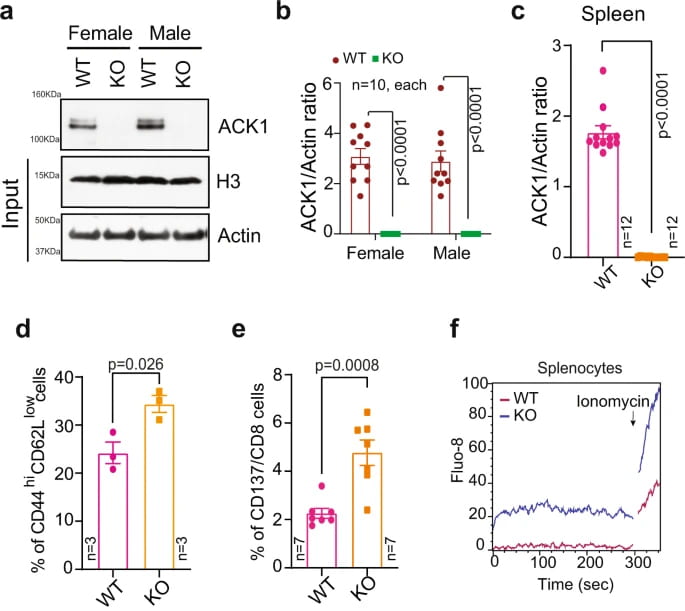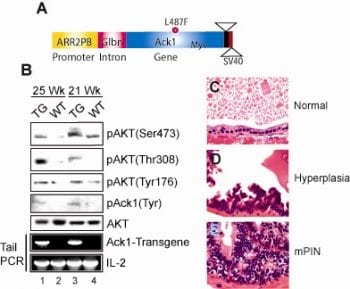Ack1 Knockout mouse
T-cell activation is negatively regulated by C-terminal Src kinase (CSK). We uncovered that ACK1 phosphorylated CSK at Tyrosine 18 (pY18), which enhanced CSK function, constraining T-cell activation. Mice deficient in the Ack1/Tnk2 gene are characterized by diminished CSK Y18-phosphorylation and spontaneous activation of CD8+ and CD4+ T cells (Figure 1), resulting in inhibited growth of transplanted ICB-resistant tumors. Furthermore, ICB treatment of castration-resistant prostate cancer (CRPC) patients results in re-activation of ACK1/pY18-CSK signaling, confirming the involvement of this pathway in ICB insensitivity. Nature Communications, 2022.
Ack1 Transgenic Mouse
To understand the pathophysiological role of ACK1 signaling, we generated a transgenic mouse model in which Myc-tagged activated ACK1 was expressed under the control of modified Probasin (PB) promoter, ARR2PB (Figure 2A). These PB-ACK1 transgenic mice display significant increase in AKT Tyr176-phosphorylation leading to Ser473/Thr308-phosphorylation in prostates (Figure 2B, top 3 panels). These mice developed prostatic intraepithelial neoplasia or mPINs (Figure 2E). Pubmed ID: 20333297
Thus, ACK1 activation could be an independent tumor initiation event in those cancer patients that exhibit normal PTEN and PI3K, but still exhibit AKT activation. Pubmed ID: 20333297

